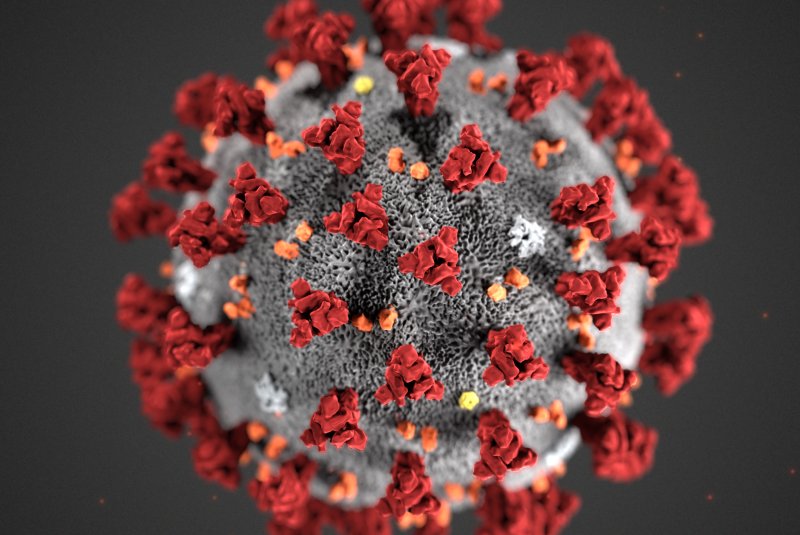Efforts to find the origins of the coronavirus are important, but spotting the next pandemic is crucial, experts say. Illustration courtesy of CDC
March 11 (UPI) -- Finding the origins of the virus that causes COVID-19 could guide public health efforts aimed at ending the current pandemic, experts from Duke University said Thursday.
However, identifying new bugs that threaten to start the next one is even more vital, they said during a conference call with reporters hosted by the school.
Learning where the coronavirus first jumped from animals to humans will "certainly help us put together the puzzle for this pandemic," Dr. Gregory Gray said on the call.
However, researchers have already identified more than 1,200 coronaviruses "and many other respiratory viruses that move in the same way" around the world," he said.
"So, we can't just think about this virus -- we have to have a better pulse of what viruses are out there," said Gray, a professor of medicine, global health and environmental health at Duke in Durham, N.C.,, who also works with the school's campuses in Singapore and China.
Just how the coronavirus that has killed 2.6 million people globally, including nearly 530,000 in the United States, first jumped from animals to humans remains unknown, and the question could take years to answer, said Gray's colleague, Linfa Wang, who also was on the call.
The Ebola virus first surfaced in Africa some 50 years ago "and we're still searching" for answers to its evolutionary trajectory, said Wang, a professor of emerging infectious diseases at Duke-NUS Medical School in Singapore.
What is known is that COVID-19's "ancestral virus ... comes from" Rhinolophus pusillus bats and "archive samples" collected from them as far back as 2013 in China, Japan, Thailand and Cambodia have recently tested positive for closely related viruses, Wang said.
However, researchers still are "trying to find the hot zone" where animal-to-human transmission began, even though the first cases were reported in Wuhan, China.
To date, no "scientifically conclusive data" exists about how the virus spread to humans, according to Wang.
The theory floated by the Chinese government that it contaminated frozen meat and fish imported into the country is a "possibility, but low probability," he said.
A World Health Organization-led team that visited China in February to investigate the origins of the pandemic has yet to release its final report.
That team faced many obstacles, about "20%" related to the political environment in the country and 80% due to the travel limitations imposed by the ongoing pandemic, Wang said.
"Pinpointing the origin of the virus is not going to be an easy task," he said.
At least part of that is due to the fact that no government "wants to discover virus in their country [so there is a] reluctance to report" new diseases, according to Wang, who has worked in China, Singapore and the United States, as well as other countries.
He called for an international effort to conduct virus surveillance -- basically an "Interpol" for infectious diseases.
Preventing pandemics is "like fighting terrorists and crime," Wang said.
Part of this effort should include better policing of deforestation, which destroys the natural habitats of wild animals, bringing them closer to humans and creating a starting point for virus transmission, as well as the illegal animal trade, according to Duke's Stuart Pimm, who also was on Thursday's call.
"It's important that we not think of [the current pandemic] as some exceptional event that won't happen again for 200 years," said Pimm, a professor of conservation ecology at Duke's Nicholas School of the Environment.
"We need to see this as a consequence of our human actions in the natural world," he said.
Gray agreed.
"We are seeing movement of people and animals and movement of animal products that we've never seen before, and if a food product carries a novel virus [it] can be moved around the world very quickly," he said.
"I'm not as worried about the coronavirus variants as I am about a new, very different virus" causing a new pandemic, he added.















